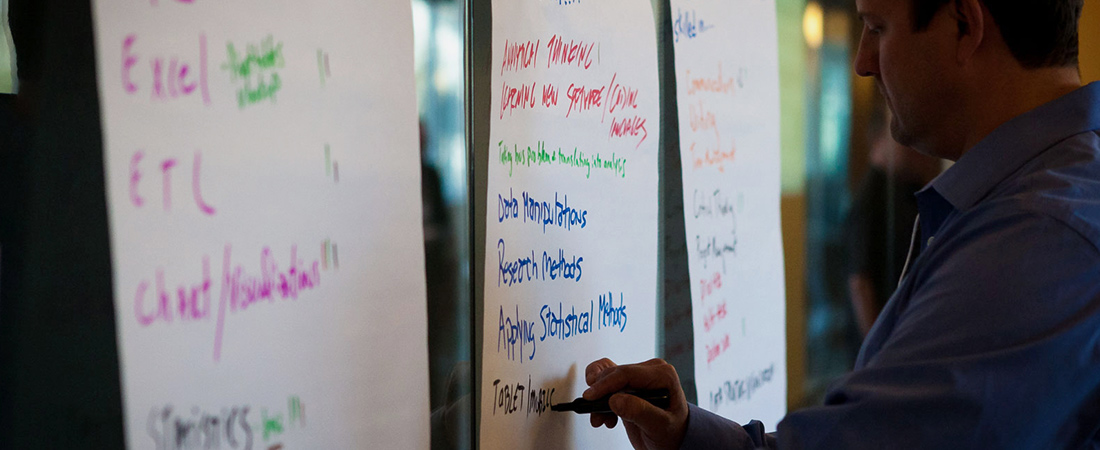Defining Data Literacy for Students

ODI is helping to chart the skills needed for success in a big data economy.
With no signs that the amount of scientific, medical, and personal data being generated will decrease anytime soon, many educators and technology sector professionals are emphasizing the importance of teaching data literacy skills as early as elementary school.
But beyond an awareness that it will be important to the next generation, the nuts and bolts of data literacy remain opaque. The specific skills and knowledge required for data literacy are rapidly evolving. Likewise, the techniques for teaching data literacy are just being developed.
What is clear to EDC’s Randy Kochevar, though, is that this rapid pace of change poses a challenge for schools.
“Students need to be exposed to data literacy skills throughout elementary, middle, and high school,” says Kochevar, director of EDC’s Oceans of Data Institute (ODI). “We need to help teachers adapt.”
ODI is serving as a catalyst for that change. In October, it convened a panel of education and industry experts to chart the future of data literacy in K–16 education at a workshop sponsored by IBM and held at the company’s Mountain View headquarters. Building Global Interest in Data Literacy: A Dialogue-Workshop Report details the workshop’s outcomes.
The most significant takeaway? Participants developed the field’s first comprehensive definition of what a data-literate individual knows and is able to do. The panel agreed that the data-literate individual:
- Understands, explains, and documents the utility and limitations of data by becoming a critical consumer of data, controlling his/her personal data trail, finding meaning in data, and taking action based on data
- Can identify, collect, evaluate, analyze, interpret, present, and protect data
They also issued a public call for action to promote the importance of data literacy throughout K–16 education.
Building big data skills
Odette Merchant, an educator at Nova Scotia Community College, was among the panelists. She describes the task of building more attention around data literacy as “the creation of an ecosystem.”
“We need to ask a lot of questions,” she says. “What are young students learning about data literacy? How does that connect to postsecondary education? And what are industry needs?”
But Merchant cautions that programs that promote data literacy will have to be nimble.
“Being able to access so much data, and also creating so much data, is new for us,” she says. “It’s really important to spend some time to consider what that all means. We are seeing this field grow and change rapidly.”
ODI first dove into the world of big data skills and knowledge at a similar workshop in 2014. The result of that panel was the Occupational Skills Profile of a Big Data-Enabled Specialist, which identifies the skills and knowledge required by professionals in data-heavy industries.
Kochevar notes that these comprehensive conversations about data literacy encompass topics well beyond math and science, such as issues of privacy and security.
“We are producing data constantly,” he says. “And more and more industries are data driven. We are realizing that data literacy is both a technical skill set and a set of behaviors."
Despite the challenges, Kochevar remains optimistic that the panel’s work can pave the way for real reforms in STEM education.
“We are at the beginning of a national conversation about data literacy,” he says. “To have all of these experts in one room, talking about how education and industry both must adapt, was really inspiring.”